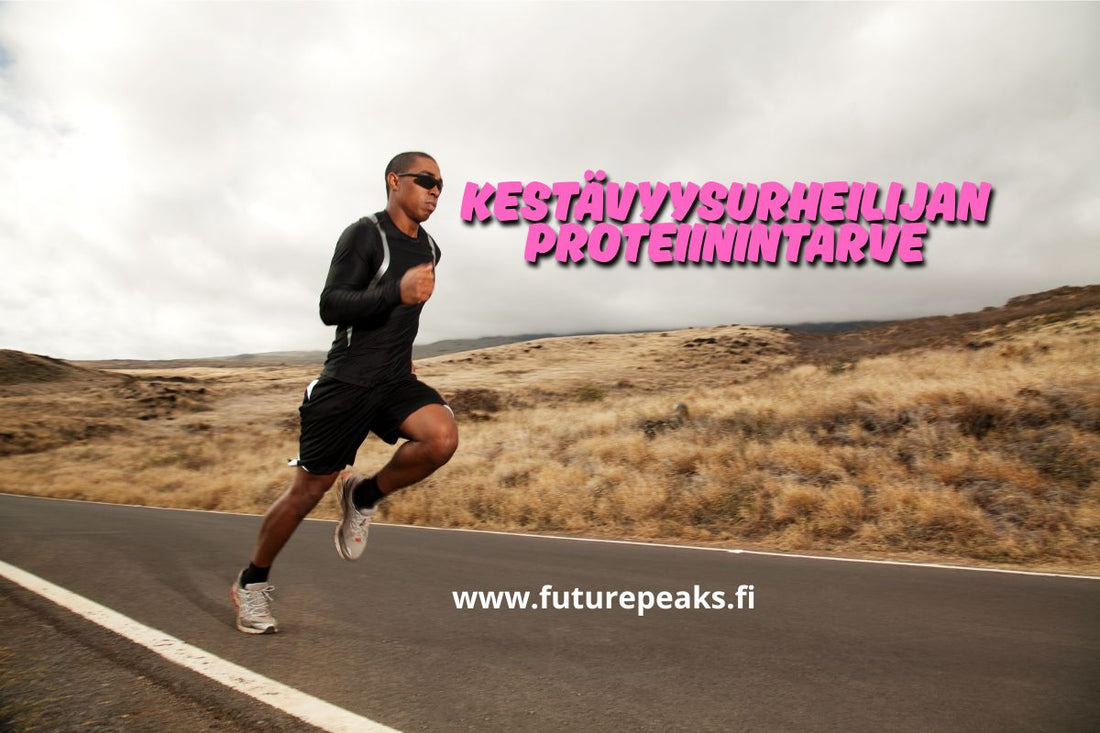
🌱 Protein needs of an endurance athlete
Share
🌱 Protein needs of an endurance athlete
Nutrition for an endurance athlete is not just about carbs and salt. While adequate energy intake is one of the most important things for endurance and injury prevention, adequate protein intake is also crucial for recovery, performance, and muscle mass maintenance.
But how much protein do you really need? When should you eat it – and what kind of products? Here are clear plant-based tips for endurance athletes!
🔢 How much protein does an endurance athlete need?
For most endurance athletes who train a lot, protein is recommended:
-
1.6–1.8 g/kg body weight/day on a normal training day
-
2.0 g/kg body weight/day or more if energy or carbohydrates are restricted or recovery needs are high
👉 For example, for a 65 kg runner, this means approx. 105–130 g of protein per day .
🏃♂️ Protein also during long workouts?
Yes, and this is often forgotten!
During long workouts (over 2-3 hours), the body doesn’t just burn carbs and fat – it also uses up amino acids, or proteins . This can lead to muscle damage and poor recovery. Low protein intake during exercise can:
✅ reduces muscle catabolism
✅ support recovery during the trip
✅ helps maintain performance, especially during ultra distances
💡 Practical tip:
Keep protein portions moderate (e.g. 5–10 g/h) and choose easily digestible products to keep your digestion on track.
Suitable products from the FuturePeaks.fi selection:
🌱 Näak Ultra Energy™ gels, bars, waffles, sports drinks and snacks – contain pea protein and BCAAs in addition to carbohydrates. These are intended to be consumed during exercise and are designed to provide a moderate amount of protein.
🌱 Planet Amino Biscuits – a plant-based protein snack with 20g of protein. This has more fiber so may not be suitable for use during high-intensity exercise.
🌱 Tailwind Recovery – a vegan recovery drink that also works during long workouts. 10g protein per serving. Mixes easily without a shaker
🌱 Nutri+ Recovery Shake – a high-quality, clear, plant-based protein drink for recovery. Can also be enjoyed during exercise. Mixes easily.
🕒 When should you eat protein?
Research and practice support a consistent protein intake throughout the day. The goal is to:
-
0.3–0.5 g/kg per meal
-
replenishment with recovery drinks, bars or snacks
📅 Example for a 65 kg athlete (total daily goal 120 g):
-
Breakfast: 20g
-
Snack: 15 g
-
Lunch: 25 g
-
Snack/during training: 15 g
-
Dinner: 25 g
-
Recovery drink: 20 g
🍽 Plant-based protein sources for everyday life and sports
🟢 Highly protein-rich:
– Tofu, tempeh, seitan, soy strips
– Plant-based protein powders , of which we have dozens of different types
– Plant-based yogurts (high-protein)
🟡 Protein + carbs:
– Quinoa, beans, lentils, hummus
– Plant-based protein bars and smoothies
🔴 Protein + fat:
– Nuts, seeds, peanut butter
– Full-fat plant-based dairy products (e.g. full-fat soy yogurt)
🛍 You can also find many of these in our selection – proteins, return products and plant-based camping snacks!
📌 Things to remember
-
In endurance sports, protein consumption and need increases – especially if you eat few carbohydrates or train a lot.
-
A plant-based diet can meet your needs, as long as you plan and combine protein sources wisely. Mixing a few plant proteins together will usually provide you with all the amino acids you need. Diversity in protein sources is a good thing.
-
Protein isn't just for recovery – long runs also benefit from protein supplementation along the way
🛒 Protein from FuturePeaks.fi
Discover our selection:
👉 Energy and protein products for endurance athletes
All plant-based. Designed for exercisers, hikers and ultrarunners.
🔍 Sources:
-
Witard et al. 2025: Protein Nutrition for Endurance Athletes
-
Williamson et al. 2023: Protein Requirements in Endurance-Trained Athletes